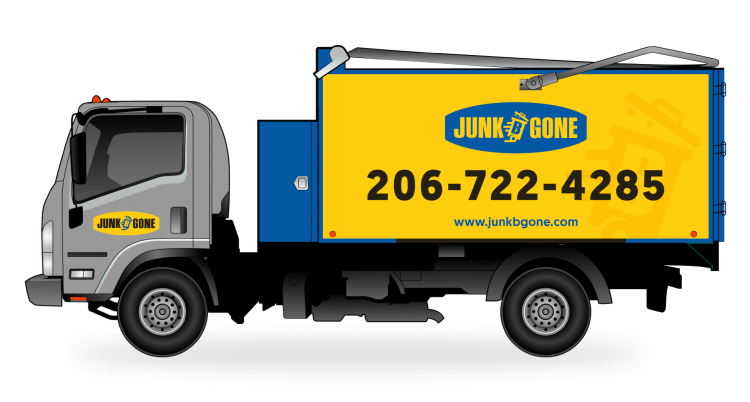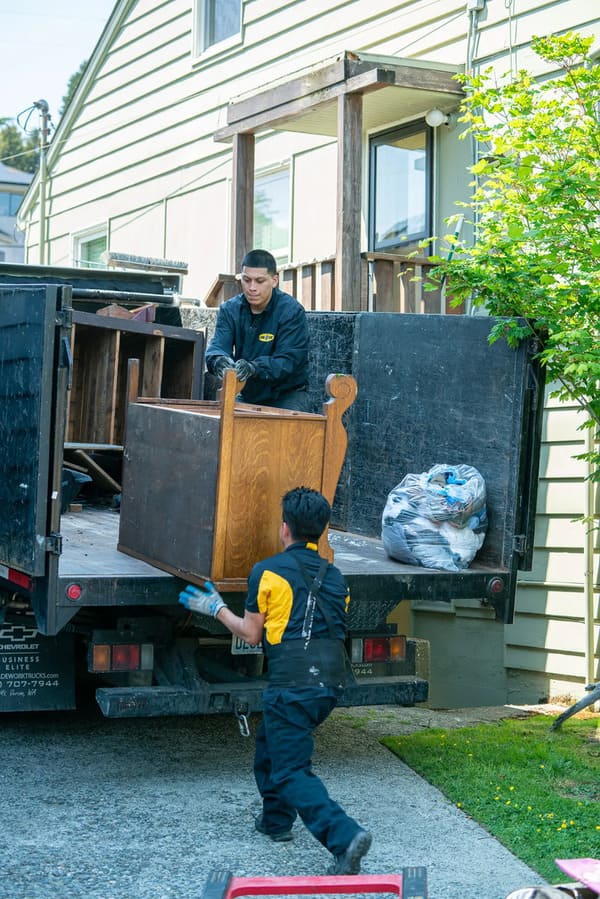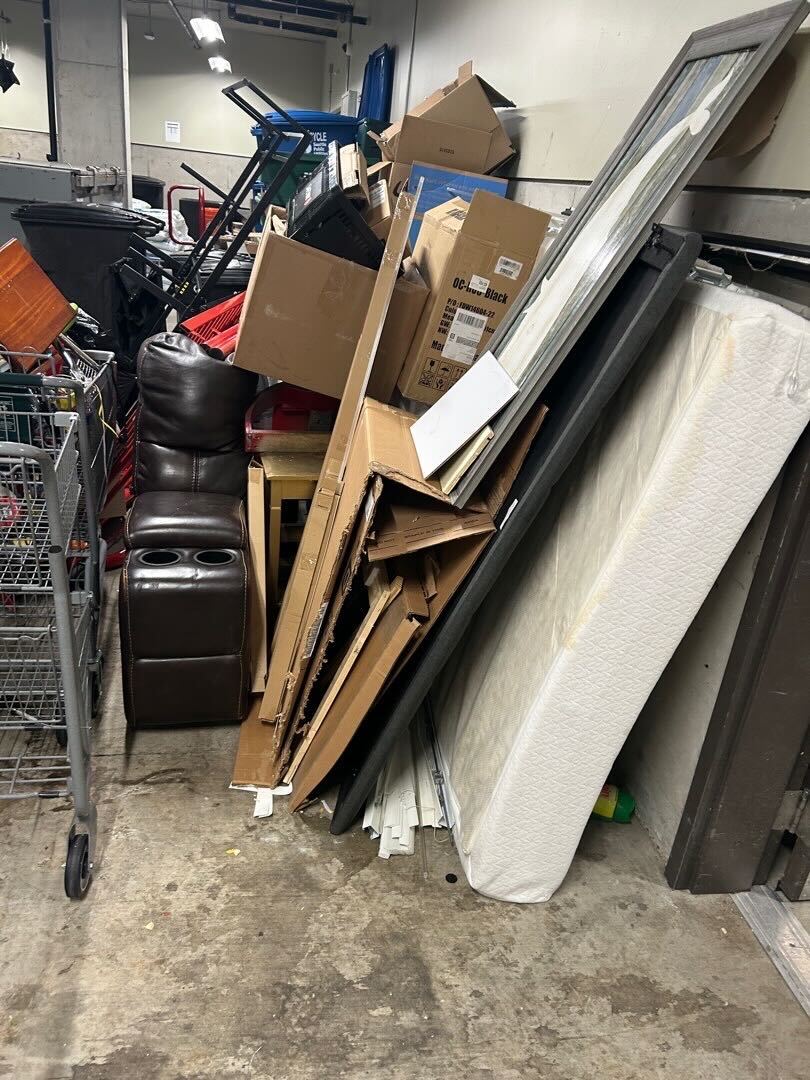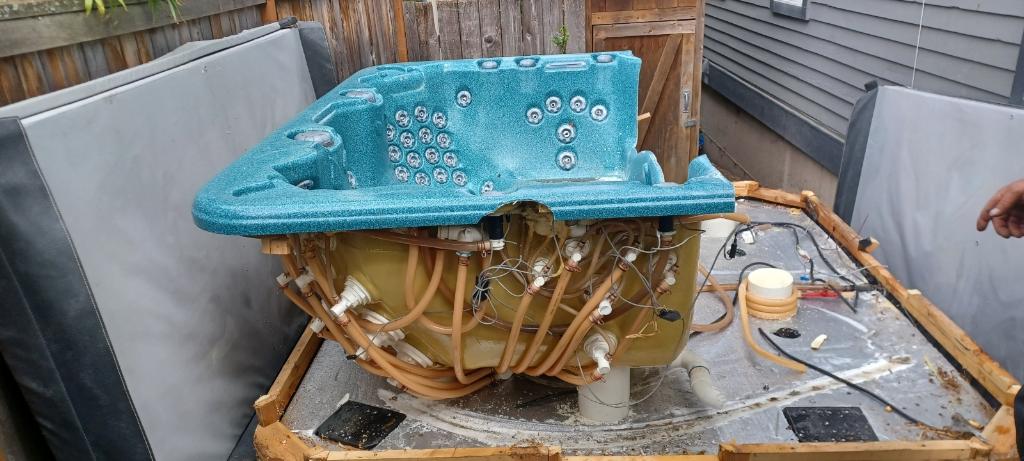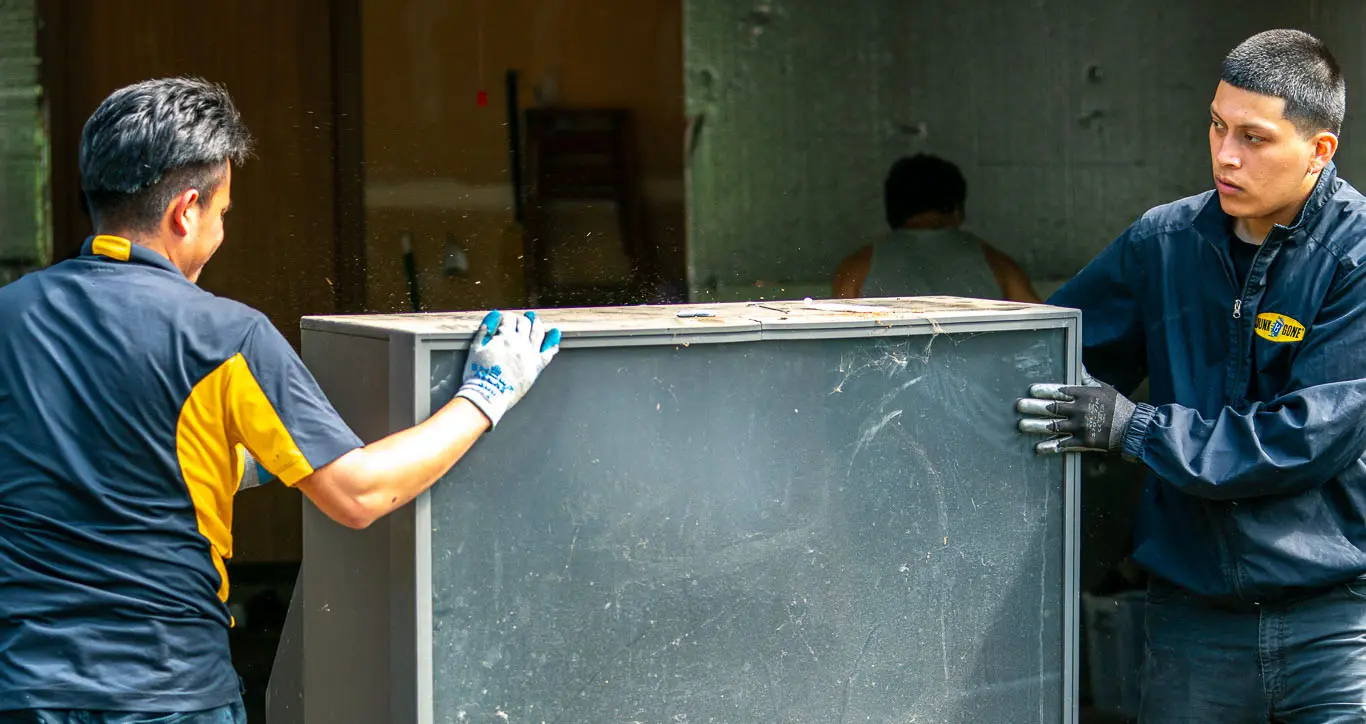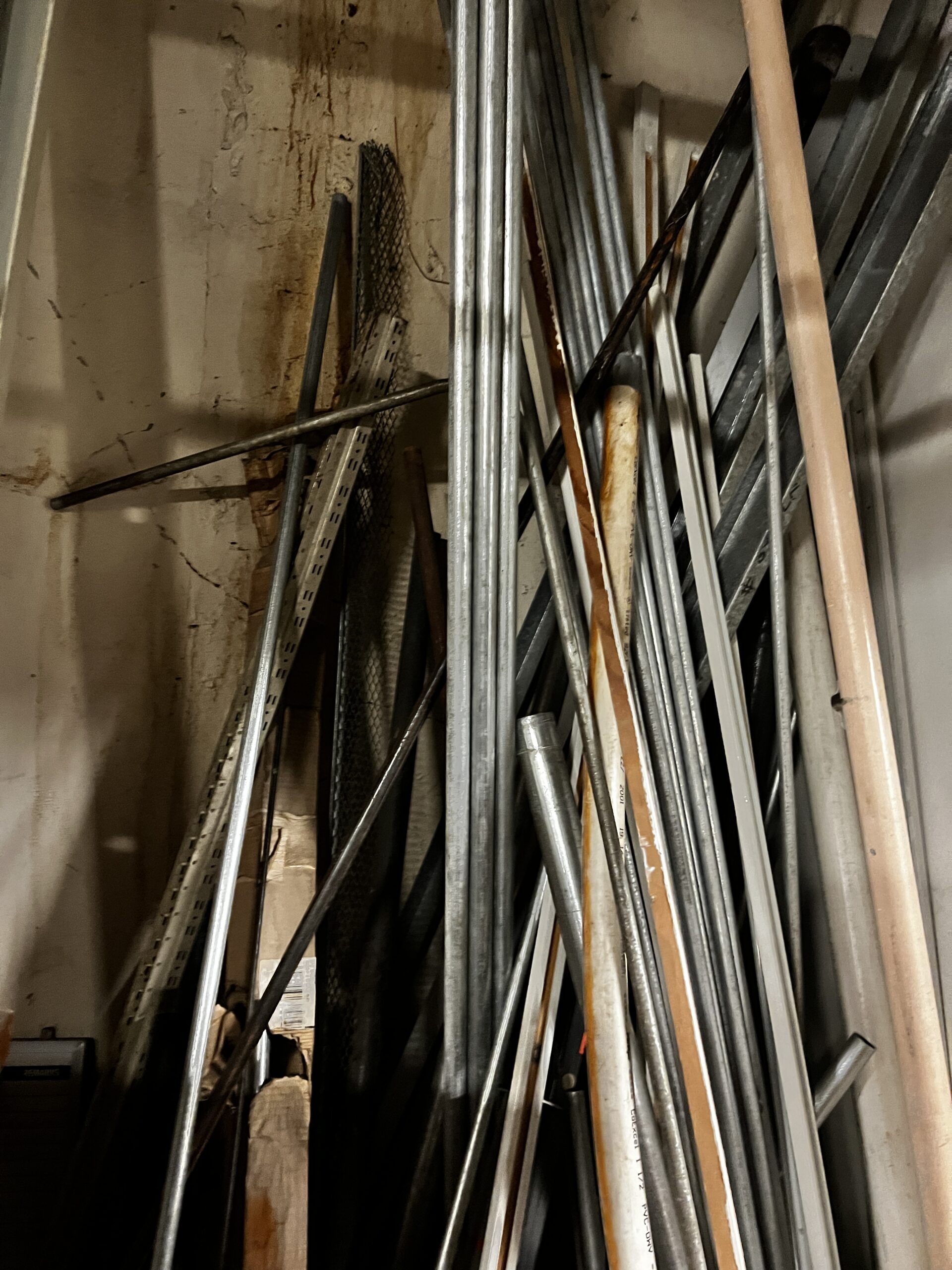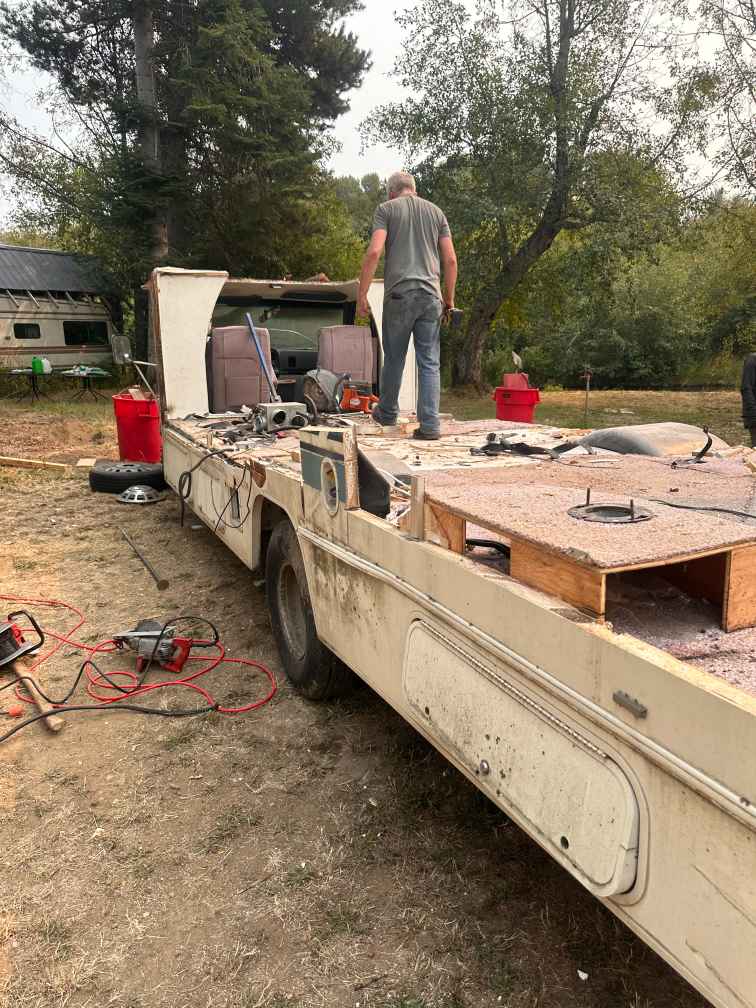Every homeowner with a yard faces the recurring challenge of yard waste disposal. As the seasons change, our yards get filled with fallen leaves, grass clippings, and occasional branches. The question then arises: How should we dispose of this waste? The two most common solutions are composting and sending the waste to a landfill. While both methods have their merits, making an informed choice can have lasting benefits for the environment and your garden. In this article, we delve deep into the pros and cons of each method, providing insights to help you make the best decision for your yard waste disposal.
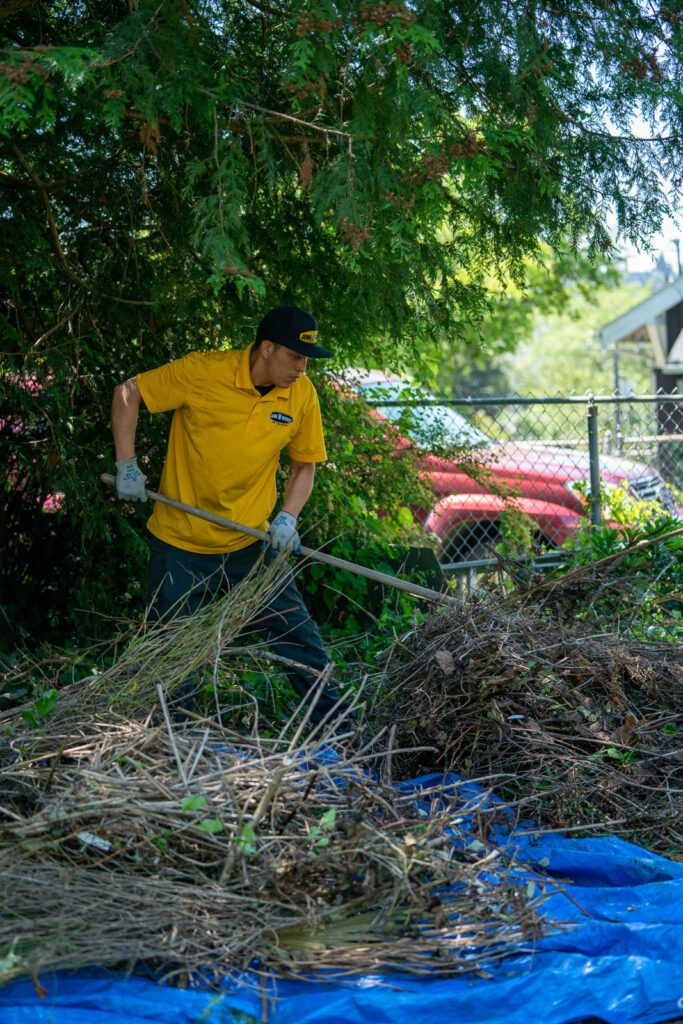
Why is Composting the Greener Choice Over Landfill for Yard Waste?
When it comes to yard waste disposal, the environmental impact is a significant factor to consider. Both composting and landfill have distinct environmental implications, and understanding these can guide you to a more eco-conscious decision.
The Green Side of Composting:
Composting stands out as an environmentally friendly method of waste disposal. Not only does it reduce the volume of waste heading to landfills, but it also plays a crucial role in cutting down greenhouse gas emissions. Here’s why composting is a win for the environment:
- Natural Recycling: Composting is nature’s way of recycling. It breaks down organic waste into nutrient-rich soil, promoting a sustainable cycle of growth and decay.
- Reduction in Methane Emissions: Organic waste in landfills produces methane, a potent greenhouse gas. Composting prevents this by allowing waste to decompose aerobically.
- Soil Enrichment: The end product of composting is a rich, organic material that enhances soil quality, promoting healthier plant growth.
For more details on the environmental benefits of composting, check out the EPA’s guide on composting.
The Environmental Concerns with Landfills:
While landfills might seem like a convenient solution, they come with environmental drawbacks:
- Methane Production: As organic waste breaks down anaerobically in landfills, it releases methane, contributing to global warming.
- Soil and Water Contamination: Landfills can lead to leachate production, which, if not managed properly, can contaminate soil and groundwater.
- Space Constraints: Landfills require vast amounts of space, and as they fill up, finding new landfill sites becomes a challenge.
While both composting and landfill have their place in waste management, composting emerges as the greener choice for yard waste, offering both environmental and gardening benefits.
Weighing the Practicality: Composting vs. Landfill for Yard Waste
Beyond the environmental considerations, practicality plays a pivotal role in determining the best method for yard waste disposal. Both composting and using a landfill come with their own sets of challenges and conveniences. Let’s break down the practical aspects of each method to help you make an informed choice.
The Practical Benefits of Composting:
Composting, while environmentally friendly, also offers several practical advantages for homeowners:
- Cost-Efficiency: Once set up, a composting system can save you money in the long run by reducing the need for commercial fertilizers and soil enhancers.
- On-Site Disposal: With a compost bin or pile in your yard, you have the convenience of disposing of waste right on your property, eliminating trips to the landfill.
- Quality Soil Enhancer: The end product of composting is a nutrient-rich compost that can significantly improve the health and productivity of your garden.
Landfill: The Quick and Straightforward Option?
Using a landfill for yard waste disposal might seem straightforward, but it has its own set of practical considerations:
- Transportation: Depending on your location, transporting yard waste to the nearest landfill can be time-consuming and may incur costs.
- Landfill Fees: Some landfills charge fees based on the volume or weight of the waste, which can add up over time.
- Limited Flexibility: Unlike composting, where you have control over the process, landfills operate on their own schedules, which might not always align with your disposal needs.
In essence, while landfills offer a quick solution, composting provides long-term benefits that can simplify and enhance your gardening and waste disposal practices. By weighing the practical aspects of both methods, you can choose the one that aligns best with your lifestyle and preferences.
Seattle’s Yard Waste Regulations: What You Need to Know
In Seattle, as in many cities, there are specific regulations and guidelines in place for the disposal of yard waste. These rules are designed to promote eco-friendly practices and ensure the proper handling of organic materials. Whether you’re considering composting or using a landfill, it’s essential to be aware of these local guidelines to ensure you’re in compliance.
Seattle’s Composting Guidelines:
Seattle encourages residents to compost their yard waste, and the city has laid out clear guidelines to ensure effective and safe composting practices:
- Accepted Materials: The city allows for the composting of grass clippings, leaves, branches, and other yard debris. However, certain materials, like diseased plants, are best left out. Seattle Public Utilities Composting Guidelines
- Compost Bin Requirements: If you’re setting up a compost bin in your yard, ensure it meets the city’s specifications to prevent pests and odors. Seattle’s Home Composting Guide
Landfill Regulations for Yard Waste:
While composting is the preferred method, there are instances when yard waste might end up in a landfill. Here’s what you need to know:
- Drop-Off Sites: Seattle has designated drop-off sites for yard waste, ensuring it’s processed correctly. Seattle’s Transfer Station Guidelines
- Fees and Charges: Depending on the volume of yard waste, there might be associated fees for disposal at city transfer stations.
Understanding and adhering to Seattle’s yard waste regulations not only ensures you’re doing your part for the environment but also helps you avoid potential fines or penalties. Before making a decision on yard waste disposal, it’s always a good idea to familiarize yourself with local guidelines.
Balancing the Benefits and Drawbacks: Making an Informed Decision on Yard Waste Disposal
Every method of yard waste disposal comes with its own set of advantages and disadvantages. To make a truly sustainable choice, it’s essential to weigh these pros and cons, considering both the environmental impact and practical implications.
Composting: The Natural Recycling Method
Pros:
- Eco-Friendly: Composting reduces greenhouse gas emissions and conserves landfill space. EPA’s Benefits of Composting
- Soil Enrichment: Compost improves soil health, structure, and water retention, leading to healthier plants. Benefits of Compost for Soil Health
- Cost-Effective: Over time, composting can save money by reducing the need for commercial fertilizers and soil enhancers.
Cons:
- Requires Maintenance: Composting requires regular turning and monitoring to ensure effective decomposition.
- Space Requirement: A compost pile or bin takes up space in your yard.
Landfill: The Quick Disposal Option
Pros:
- Convenience: For those without the space or time for composting, landfills offer a quick disposal solution.
- Wider Range of Waste: Landfills can accept a broader range of waste, not just organic materials.
Cons:
- Environmental Impact: Landfills contribute to methane emissions and can lead to soil and water contamination. Environmental Impact of Landfills
- Costs: Depending on local regulations, there might be fees associated with landfill disposal.
While both composting and landfill disposal have their merits, understanding the pros and cons of each method can guide you to a more sustainable and informed decision. Whether you’re an avid gardener looking to enrich your soil or a homeowner seeking a quick disposal solution, it’s essential to choose a method that aligns with your values and the well-being of our planet.
Consider Professional Yard Waste Management
If you’re looking for a hassle-free, eco-friendly way to manage your yard waste, consider using a professional service like Junk B Gone. Contact us today for a free quote and take the first step towards responsible yard waste management.

